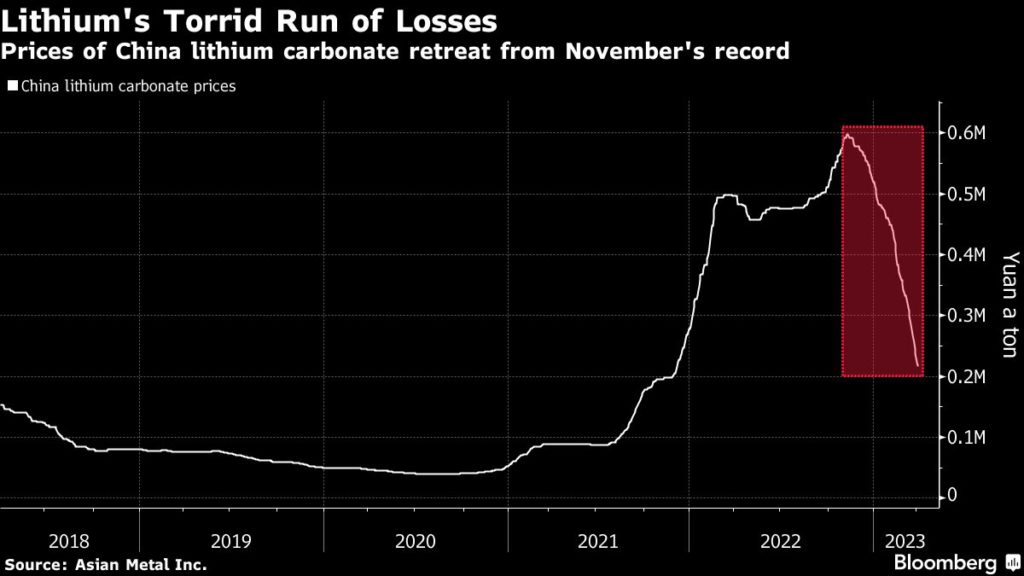
Collapsing prices of lithium have prompted Chinese companies to rein in output of the key battery material at a top production hub.
Some lithium producers in Yichun in Jiangxi province, including two major ones, have reduced processing rates to stem losses, Chinese publication The Paper reported, citing an unidentified person, and without identifying specific companies. The city in eastern China accounted for about 11% of the country’s total lithium carbonate production in 2022, according to BloombergNEF.

Surging prices of lithium carbonate, used in electric-car batteries, led to a production boom in Yichun centered around a low-grade ore known as lepidolite. That rally has been turned on its head on concerns over more supply and slower EV demand growth, with prices in China plunging about 63% since reaching a record high in November.
“The refining suspension in Yichun might provide support for the price downturn, helping to stabilize lithium carbonate prices in the near term,” said Susan Zou, analyst at Rystad Energy.
Lithium carbonate prices on Thursday snapped a 16-day losing streak to stay at 217,500 yuan ($31,613) a ton, data from Asian Metal Inc. shows. Still, they are more than five times higher compared to multi-year lows reached in 2020.
A notable price rebound will be subjected to the demand recovery, which is unlikely to happen in the next month, Zou said.
Three firms with plants in Yichun — Jiangxi Special Electric Motor Co., Yongxing Special Materials Technology Co. and Nanshi Lithium — didn’t immediately respond to requests for comment.
Last month, producers in Yichun were targeted for environmental infringements and unlicensed mining, with several ministry officials arriving from Beijing to investigate the sector, according to local media.
Chinese giants Ganfeng Lithium Group Co. and Tianqi Lithium Corp. — both of which posted record earnings in 2022 — said last week that a global shortage of the battery material could ease in the future. Tianqi also warned of potential downside risks for lithium prices. Citigroup Inc. echoed the view, citing weak downstream consumption in the near term as buyers in China continue to run down inventories.
